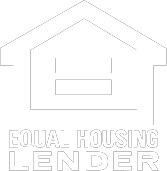Tulsa USDA Loan
Scissortail Financial offers USDA loans in Tulsa with zero down payment and competitive rates. We’ll help you navigate the process effortlessly.

Table of Contents
What is a Tulsa USDA Loan?
A Tulsa USDA loan is a specialized mortgage program designed to assist low- to moderate-income families in purchasing homes located in eligible rural and suburban areas. Backed by the United States Department of Agriculture (USDA), these loans offer several distinct advantages, making homeownership more accessible for those who qualify.
Key Features of USDA Loans
No Down Payment: One of the most significant benefits of a USDA loan is that you can finance up to 100% of the home’s purchase price, eliminating the need for a down payment. This feature makes homeownership more achievable for many buyers who may not have substantial savings for a traditional down payment.
Competitive Interest Rates: USDA loans often come with lower interest rates compared to conventional mortgages. This can result in significant savings over the life of the loan, making homeownership more affordable.
Low Mortgage Insurance: The mortgage insurance costs associated with USDA loans are generally lower than those for FHA or conventional loans. This helps to keep monthly payments manageable and reduces the overall cost of borrowing.
Flexible Credit Requirements: USDA loans offer more lenient credit requirements compared to many other loan types. This flexibility can make it easier for borrowers with less-than-perfect credit to qualify for a mortgage.
Geographic and Income Restrictions: To qualify for a USDA loan, the property must be located in an eligible rural or suburban area as defined by the USDA. Additionally, applicants must meet specific income requirements, which are typically based on the median income for the area and adjusted for household size.
Overall, a USDA loan can be an excellent option for qualifying homebuyers in Tulsa who are looking to purchase a home in a rural or suburban setting while taking advantage of favorable loan terms.
Tulsa USDA Loan Requirements
To qualify for a USDA loan in Tulsa, borrowers must meet several key criteria established by the USDA and individual lenders. Here’s what you need to know:
Income Limits: Your income must fall within the USDA’s designated limits for your area and family size. These limits are designed to ensure the program assists low- to moderate-income families.
Credit Score: A minimum credit score of around 640 is generally preferred. While the USDA doesn’t set a strict minimum, lenders may have their own requirements.
Primary Residence: The property you are purchasing must be used as your primary residence. USDA loans are not available for investment properties or second homes.
Property Eligibility: The home must be located in an eligible rural or suburban area as defined by the USDA. Urban properties are not eligible for USDA financing.
Debt-to-Income Ratio (DTI): Typically, a DTI ratio of 41% or less is preferred. This ratio measures your total monthly debt payments against your gross monthly income.
Employment History: Lenders usually require at least two years of consistent employment. This demonstrates stability and the ability to manage mortgage payments.
Meeting these requirements can help you take advantage of the benefits offered by USDA loans, such as zero down payment and competitive interest rates.
Tulsa USDA Loan Income Limits
For 2024, the USDA has established specific income limits for qualifying for a USDA loan in Tulsa, reflecting an increase from the previous year. These limits ensure that the program benefits low- to moderate-income households. Here are the updated income limits:
Households of 1–4 People: The income limit is set at $112,450. This represents an increase from the previous year’s limit of $110,650.
Households of 5–8 People: The income limit is $148,450. This is up from last year’s limit of $146,050.
These income thresholds are designed to accommodate various family sizes and income levels, making homeownership more accessible for a broader range of applicants. Meeting these limits is crucial to qualify for a USDA loan, which offers benefits such as no down payment and competitive interest rates.
Tulsa Mortgage Programs
In Tulsa, a variety of mortgage programs are available to address different financial needs and homebuyer situations. Here’s a closer look at some of the popular options:
VA Loans
VA loans are tailored specifically for veterans, active-duty military personnel, and eligible surviving spouses. These loans offer several advantages, including favorable terms, no requirement for a down payment, and no need for private mortgage insurance (PMI). This makes them an excellent option for those who qualify, providing significant cost savings and accessible home financing.
Conventional Loans
Conventional loans are not backed by any government agency, unlike VA or FHA loans. They typically come with fixed interest rates and flexible terms, which can be customized to suit various financial situations. However, they generally require higher credit scores and larger down payments compared to VA loans. Conventional loans are a popular choice for those who meet the credit and down payment requirements.
FHA Loans
FHA loans are insured by the Federal Housing Administration and are designed to help borrowers with lower credit scores and smaller down payments. These loans are ideal for first-time homebuyers or those with less-than-perfect credit, making homeownership more attainable. The insurance provided by the FHA helps mitigate lender risk, allowing for more accessible loan terms.
USDA Loans
USDA loans are intended for homebuyers in rural areas and offer the benefit of no down payment. Backed by the United States Department of Agriculture, these loans are a great option for those looking to purchase a home in eligible rural and suburban areas. The lack of a down payment requirement can significantly reduce the upfront costs of buying a home.
Section 184 Loans
Section 184 loans are designed specifically for Native American homebuyers. These loans provide favorable terms and lower down payments, making them a beneficial option for those who qualify. The program aims to promote homeownership within Native American communities by offering accessible and affordable financing solutions.
Refinance Loans
Refinance loans allow homeowners to modify their existing mortgage terms or interest rate. This can be an effective way to reduce monthly payments or shorten the loan term, potentially saving money over time. Refinancing can be a strategic financial move if interest rates have dropped or if you want to change your loan’s structure.
Investment Property Loans
Investment property loans are geared towards purchasing properties for rental or investment purposes. These loans are designed to support real estate investors looking to acquire rental homes or other investment properties. They often come with different terms and conditions compared to standard home loans, reflecting the investment nature of the property.
Second Home Loans
Second home loans are used to purchase vacation homes or additional residences. These loans can have different requirements compared to loans for primary residences, reflecting the unique needs and financial profiles of second-home buyers. They provide an opportunity for individuals to own multiple properties.
Jumbo Loans
Jumbo loans are meant for high-cost properties that exceed the conforming loan limits set by government agencies. These loans typically come with stricter requirements but offer competitive rates for larger loan amounts. They are ideal for buyers looking to finance more expensive properties.
Down Payment Assistance Programs
Down payment assistance programs are designed to help first-time homebuyers with grants or low-interest loans to cover the down payment. These programs aim to make homeownership more accessible by reducing the financial barrier of the down payment, enabling more individuals to purchase their first home.
First-Time Home Buyer Programs
First-time homebuyer programs offer special benefits such as lower interest rates or down payment assistance. These programs are tailored to help new buyers enter the housing market with more favorable financing terms, making the process of buying a first home smoother and more affordable.
At Scissortail Financial, we are here to help you navigate these mortgage options and find the best solution for your needs. Our team is dedicated to providing personalized support and guidance throughout the home financing process.
FAQ's
Tulsa USDA Loan FAQ's
While the USDA does not set a minimum credit score, most lenders prefer a minimum credit score of around 640 for a smoother approval process.
No, one of the significant benefits of a USDA loan is that it requires no down payment, allowing eligible borrowers to finance 100% of the home’s purchase price.
USDA loans have specific income limits based on the area and family size. These limits are designed to help low- to moderate-income families. You can check your eligibility by contacting Scissortail Financial or visiting the USDA website.
Yes, USDA loans are intended for rural and some suburban areas. The property must be located in an eligible area as determined by the USDA. You can check property eligibility on the USDA website.
USDA loans can be used to purchase a variety of primary residences, including single-family homes, condos, and manufactured homes, as long as they are located in eligible areas.
Yes, USDA offers a streamlined refinance option to help current USDA loan holders refinance their existing mortgage for a lower interest rate or better terms.
To apply for a USDA loan, you will need proof of income (pay stubs, tax returns), employment history, credit report, and other documents such as bank statements and identification.
The approval process for a USDA loan typically takes about 30 to 45 days. This timeline can vary based on the lender, your financial situation, and how quickly you can provide the required documentation.
No, USDA loans are available for both first-time and repeat homebuyers, as long as they meet the income and property eligibility requirements.
USDA loans do not have PMI, but they do require an upfront guarantee fee and an annual fee. These fees are typically lower than the mortgage insurance premiums required for FHA loans.
